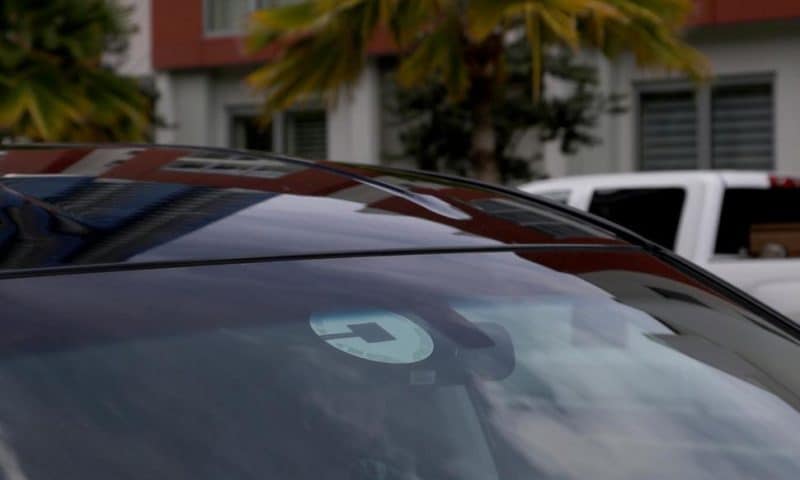While shoppers get morning coffee and complete work wardrobes delivered to their homes, some businesses are working with ride-hailing company Uber to lure customers back through their doors.
NEW YORK — While shoppers are getting everything from morning coffee to complete work wardrobes delivered to their homes, some businesses are working with ride-hailing company Uber to entice customers through their doors.
Uber launched a voucher program Tuesday that enables companies like Westfield Mall and TGI Fridays to dole out free or discounted rides to customers, offering a way for retailers to counter declining foot traffic heightened by the growth of online shopping.
Retail traffic has declined 2.3% over the last two years, according to Cowen Equity Research. Malls in particular have experienced a drop-off as younger generations living in urban centers have shown little interest in owning cars and taking trips to suburban shopping malls, said Jon Reily, vice president and global commerce strategy lead at Publicis Sapient. The growing number of retail bankruptcies illustrates the problem, he said.
“That’s a great move for malls to get people in the door, because malls need footfall, and anything that they can do to get that is a good thing,” Reily said.
Restaurants are also participating in the Uber vouchers, including some that are already delivering food to customers’ homes through Uber Eats.
Getting diners back into the restaurant — even if it means paying for their ride — could enable restaurants to make more money since customers could be more inclined to order a dessert or an alcoholic beverage or two than if they ordered delivery to their homes.
Alcohol is a money-maker for restaurants, and delivering happy hour margaritas or cocktails in an Uber car isn’t a viable option. Uber does deliver alcohol from a very limited number of restaurants, but it is not available to most customers.
“Our bartenders might hand these out as a way to ensure we’re providing a great guest experience,” said Sherif Mityas, chief strategy officer at TGI Fridays.
The vouchers — like coupons — could be given out as a perk to rewards members, creating another visit that might not happen otherwise, Mityas said.
In recent months Uber has been working with hundreds of companies to test the program, including entertainment providers such as concert promoter and venue operator Live Nation, basketball team the Golden State Warriors and MGM Resorts. The program is now more widely available to business in the majority of cities where Uber operates.
Participating businesses pay for the rides and set the terms, deciding whether to offer free or discounted rides and any time limitations, and they distribute the vouchers as they see fit. They send customers a link to the voucher through email or their own apps, and when customers accept the voucher it will be loaded into the Uber app.
“Consumers today are really demanding that convenience,” said Brittany Wray, strategic partnerships lead for Uber for Business. The vouchers enable businesses to offer a better customer experience by taking care of the hassle of getting to and from the physical location, she said.
Uber’s new product illustrates a paradigm shift in retailing where businesses are focused on customer experience instead of the product, said Barbara Kahn, professor of marketing at The Wharton School at the University of Pennsylvania.
One way to compete with Amazon’s low prices and convenience is to offer a really good in-store experience, and “in order to do that, you do have to bring people into the mall,” Kahn said.

